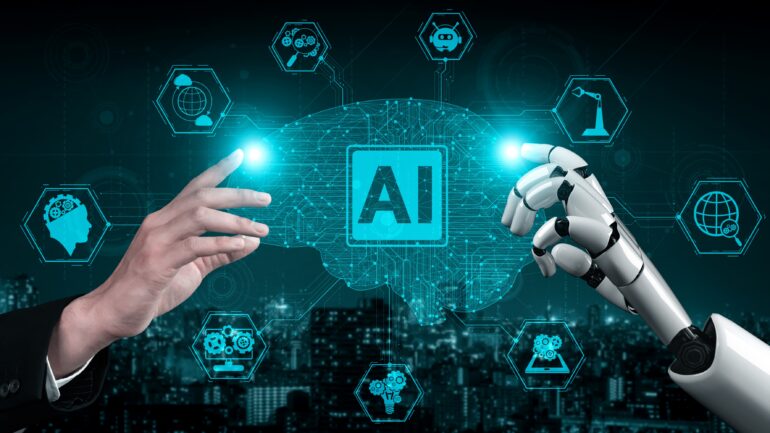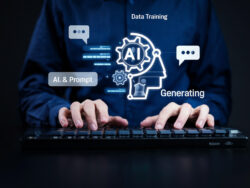The Skills of Tomorrow: Navigating the AI Revolution

The skills that will define the next decade are those that bridge technical proficiency with domain expertise, hardware optimisation, regulatory savvy, and a strong ethical compass. The challenge and the opportunity lie in becoming adaptable pioneers, ready to navigate the complex and interconnected world of AI.
Artificial intelligence (AI) is not just a technological marvel but has emerged as a transformative economic force, professionals in the industry face an urgent need to reskill. The State of AI Report 2024, prepared by AI investor Nathan Benaich and Air Street Capital, paints a clear picture: the AI landscape is evolving rapidly, and those who fail to adapt will be left behind. As AI progresses from theory to widespread application, the skills required to stay competitive and relevant are shifting fundamentally.
Mastering the Multimodal Future
The next phase of AI is no longer limited to text generation or single-modality tasks. Cutting-edge models now integrate capabilities across multiple domains, blending text, images, video, code, and even biological data into a unified framework. This shift – spearheaded by tech giants like OpenAI, Google DeepMind, and Meta – reflects a broader trend where AI systems are increasingly capable of performing complex, cross-disciplinary tasks.
For AI professionals, this means that expertise in any one relevant area – whether natural language processing (NLP), computer vision, or robotics – will no longer suffice. The industry demands a new kind of polymath: individuals who understand the synergies between these domains. Engineers must learn to develop and fine-tune models capable of switching seamlessly between different input types, such as text and images, and even working within physical or biological environments.
Moreover, knowledge in fields like neuroscience, biology, or mathematics will become particularly valuable as AI expands its reach. We are already seeing AI’s influence in drug discovery through AlphaFold’s modelling of protein interactions, or in atmospheric science with AI models capable of simulating climate patterns. Professionals equipped with a combination of AI skills and domain expertise in these areas will be uniquely positioned to lead the next wave of innovation.
From Software to Silicon: The Hardware Imperative
While software once took centre-stage in the AI revolution, the narrative is now expanding to include hardware optimisation. The future of AI will not only depend on sophisticated algorithms but on how efficiently these algorithms run, especially as they migrate to edge devices like smartphones or IoT systems. Companies like Microsoft and Apple are already racing to develop lightweight models that can perform advanced tasks directly on these platforms, emphasising the need for on-device AI.
For professionals, this necessitates a shift in focus. Understanding AI hardware deployment, from GPU programming to Edge computing, is no longer optional – it is essential. Engineers must learn the intricacies of model quantisation and distillation techniques that make it possible to shrink models without compromising performance. The capacity to optimise AI systems for minimal energy consumption will be critical, especially as environmental regulations tighten.
NVIDIA’s current dominance in the AI hardware market signals the central role of compute power in the sector’s future. Yet, it also highlights the need for professionals to understand the intersection of hardware and software, ensuring their skillsets align with the integration required to build next-generation AI systems.
Ethical AI and Regulatory Acumen: Navigating a Fragmented Global Landscape
As AI scales, so too does the need for robust governance frameworks. In 2024, global governance efforts remain patchy, with voluntary commitments struggling to gain traction. Meanwhile, the United States and the European Union have forged ahead with national and regional regulations aimed at controlling data privacy, algorithmic transparency, and safety. As AI becomes deeply entwined with everything from healthcare to national security, regulators are increasingly focused on its societal impact.
For professionals, the message is clear: technical skills alone are no longer enough. Navigating the AI landscape will require a deep understanding of regulatory environments and the ethical implications of AI deployment. Whether it is ensuring compliance with data privacy laws or managing the biases and ethical risks embedded in AI systems, professionals will need to integrate these considerations into their work.
Specialists who bridge the gap between technology and policy – those who can work effectively within regulated environments while aligning AI development with ethical standards – will become indispensable. The emergence of roles such as AI ethics consultants and compliance officers is a testament to this growing demand.
Sustainability: AI’s Next Frontier
The tech industry’s reckoning with sustainability is gaining momentum. As AI models grow in size and complexity, their energy demands are becoming a focal point. Companies are under increasing pressure to manage their emissions and optimise their compute usage, particularly as the industry grapples with the physical and environmental constraints of large-scale deployments. Frontier labs, for instance, are experimenting with distributed low-communication training techniques to mitigate their energy footprints.
For AI engineers, knowledge in sustainability practices and green tech is rapidly becoming a prerequisite. Professionals must understand how to design and deploy AI systems that minimise energy consumption without sacrificing performance. This includes embracing new methods for efficient data processing and leveraging sustainable hardware solutions. The skills needed to achieve this balance will be critical as organisations strive to meet emission targets and reduce their carbon footprint, not just for regulatory compliance but as a competitive advantage in a world increasingly valuing green credentials.
AI Safety and Security: A Shift from Theory to Practice
Safety in AI is evolving from an abstract concern to an operational reality. Companies that once championed caution over AI risks are now accelerating their development due to commercial imperatives. This shift underscores an emerging need for professionals skilled in AI safety, risk assessment, and the design of secure, robust models.
Understanding vulnerabilities such as jailbreaking techniques and developing countermeasures to secure models against long-term threats will be a valuable skill set. In addition, with governments investing in AI safety infrastructure, there is a growing opportunity for specialists to work alongside regulatory bodies to build secure AI systems that protect critical infrastructure. As AI safety becomes central to public and private sector priorities, expertise in risk mitigation will be crucial for those aiming to shape the future of the industry.
Adapt to Thrive & Survive
The AI sector’s rapid evolution requires a new mindset and a commitment to lifelong learning. As technology reshapes industries, professionals must go beyond traditional technical expertise. The skills that will define the next decade are those that bridge technical proficiency with domain expertise, hardware optimisation, regulatory savvy, and a strong ethical compass.
For AI professionals, the challenge and the opportunity lie in becoming adaptable pioneers, ready to navigate the complex and interconnected world of AI. The industry is at a pivotal moment – one that will reward those who proactively build the skills to not just participate in but shape the AI systems that will define our future.





